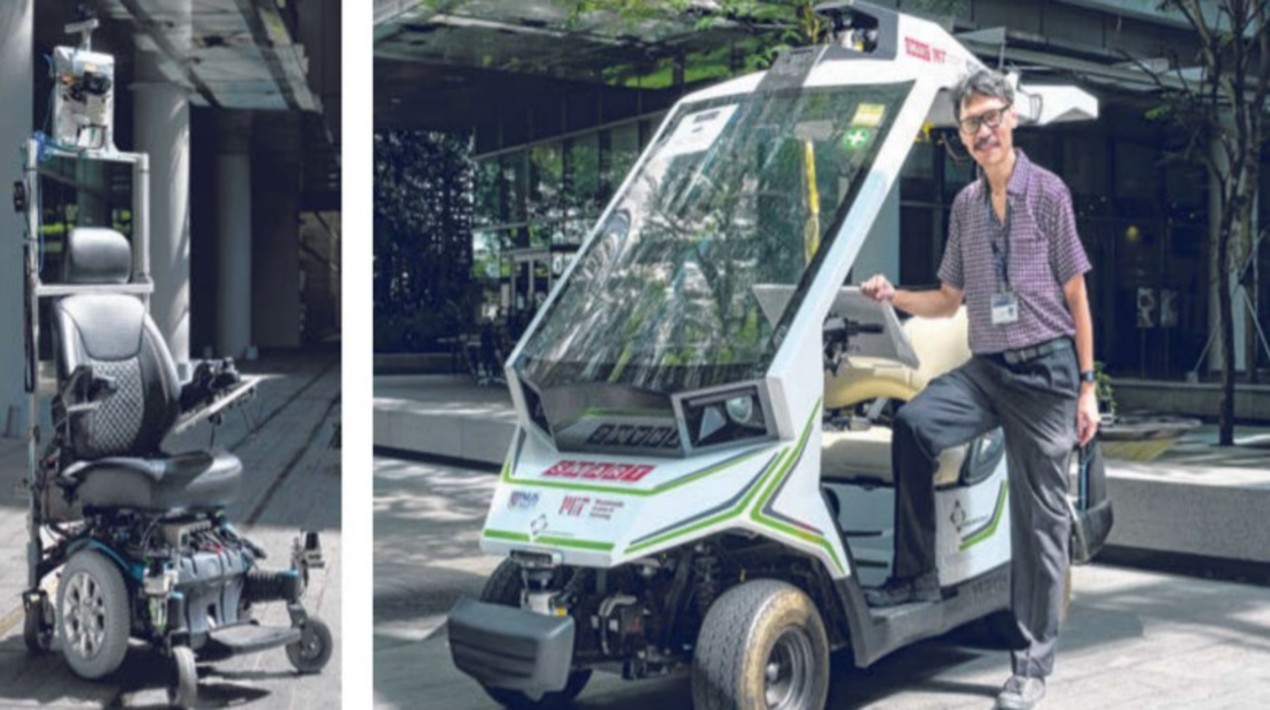
National University of Singapore (NUS) students had a glimpse of Singapore’s possible transport future by using self-driving golf carts and devices such as a scooter. In place of a steering wheel, there is a large computer screen that shows the devices’ reading of their surroundings. Brake pedals are depressed without anyone stepping on them, while internal sensors track how far the vehicles have moved by calculating the number of turns their wheels have made.
They were designed by Singapore-Massachusetts Institute of Technology Alliance for Research and Technology (Smart), a research enterprise set up more than 10 years ago to introduce future mobility solutions.
I envisioned a future where people could book driverless golf carts on an app to take them to a driverless car pickup point. He predicted that autonomous vehicles (AV) would eventually be safer than cars driven by humans, touting them as a solution to do away with what he called the bad Ds – dangerous tasks, degrading tasks, demeaning tasks and driving.
– Professor Marcelo Ang, Department of Mechanical Engineering, NUS
The current vehicles’ ability to bypass obstacles remain fairly limited – they rely mostly on travelling along a fixed route and often stop dead in their tracks when, say, a group of students are in the way. When exiting a small lane onto a bigger road, the vehicles also take time to calibrate to match the new driving speed and road conditions. The wheelchair, scooter and golf carts travel at a maximum speed of 5 kmph – a brisk walking pace – while the car’s speed is capped at 30 kmph for safety reasons.
The industry worldwide is still figuring out the technical details of autonomous driving, but Singapore is one of the most AV-ready countries in the world. To have widespread AV use, Singapore needs to be able to overtake or change lanes. The ultimate test is manoeuvring at a roundabout, and that will take time. Predicting human behaviour and the actions of other drivers remain difficult.
Driverless vehicles are already allowed to use the whole of western Singapore as a testbed, once given permission. A self-driving car test centre was opened in 2017 outside the Nanyang Technological University where AVs can be put through their paces and be subjected to rigorous tests, including aggressive driving and interactions with other road users.
The future of Singapore’s transport system with driverless vehicles as the enabling technology could bring greater mobility for the elderly and the disabled. AV promises a more efficient transportation solution and lowers the environmental footprint by optimising road usage. In Singapore, the North-East and Downtown MRT lines, and LRT already use driverless technology to improve the punctuality of our mass transport and overcome our manpower constraints.
AV-enabled mobility could be a central feature in our future town-planning, enabling commuters to get around effortlessly by offering first- and last-mile connectivity within neighbourhoods. The sharing of autonomous vehicles will reduce the number of vehicles on the roads, thereby increasing convenience to commuters.
As reported by OpenGov Asia, reports indicate that an autonomous vehicle start-up recently secured multimillion-dollar funding to boost its production and operations in the country. An autonomous car is a vehicle capable of sensing its environment and operating without human involvement. A human passenger is not required to take control of the vehicle at any time, nor is a human passenger required to be present in the vehicle at all.
An autonomous car can go anywhere a traditional car can go and do everything that an experienced human driver does. Autonomous cars create and maintain a map of their surroundings based on a variety of sensors situated in different parts of the vehicle.
















